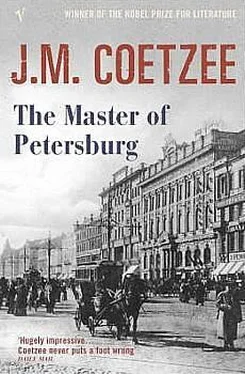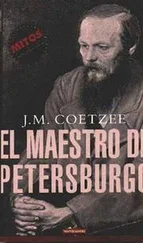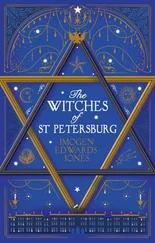In a corner crouches a man, blinking against the light. Though he has a woollen scarf wound around his head and mouth and a blanket over his shoulders, he recognizes the beggar he confronted in the church portico.
'Who are you?' he says, his voice cracking. 'Can't you leave me alone?'
The match goes out. He strikes another.
The man shakes his head firmly. A hand emerges from under the blanket and pushes the scarf aside. 'You can't order me,' he says. There is a smell of putrid fish in the air.
The match goes out. He starts to climb the stairs. But tediously the paradox comes back: Expect the one you do not expect. Very well; but must every beggar then be treated as a prodigal son, embraced, welcomed into the home, feasted? Yes, that is what Pascal would say: bet on everyone, every beggar, every mangy dog; only thus will you be sure that the One, the true son, the thief in the night, will not slip through the net. And Herod would agree: make sure – slay all the children without exception.
Betting on all the numbers – is that still gambling? Without the risk, without subjecting oneself to the voice speaking from elsewhere in the fall of the dice, what is left that is divine? Surely God knows that, and will have mercy on the gambler-at-heart! And surely the wife who, when her husband kneels before her and confesses he has gambled away their last rouble and beats his breast and kisses the hem of her dress – the wife who raises him and wipes away his tears and without a word departs to pawn her wedding-ring and returns with money ('Here!') so that he can go back to the gaming-room for the one last bet that will redeem all – surely such a woman is touched with the divine, a woman who stakes on the man who has nothing left, a woman who, when even the wedding-ring is pawned and lost, goes out a second time into the night and comes back with the money for another stake!
Does the woman upstairs, the woman whose name he seems for the moment to have forgotten, whom he even confuses with that Gnadige Frau his landlady in Dresden, have the touch of this divinity upon her? He does not know the first thing about her, only the last and most secret thing: how she gives herself. From how a woman gives herself can a man guess how she will give herself to the god of chance? Is such a woman marked by abandon, an abandon that does not care where it leads, to pleasure or to pain, that uses the sensual body only as a vehicle, and only because we cannot live disembodied? Is there a form of lovemaking she stands for in which bodies press against and into and through each other into a darkness in which nothing can be heard but the flapping of bedsheets like wings?
Memories of his nights with her flood back with sudden fullness, and everything that was tangled in him grows straight, pointing like an arrow to her. Desire in all its luxuriousness overwhelms him. She, he thinks: she is the one, it is she whom I want. Therefore…
Therefore, smiling to himself, he hurries back down the stairs and gropes his way to the corner where the man, the hireling, the spy, has made his nest. 'Come,' he says, speaking into the dark, 'I have a bed for you.'
'This is my post, I must stay at my post,' replies the man pawkily.
But nothing can impair his good spirits now. 'The one for whom you are waiting will come, even to the third floor, I assure you. He will knock at the door and wait with patience and refuse to go away.'
There is a long scuffling and a rustling of paper. 'You don't have another light, do you?' says the man.
He strikes a match. Hastily the man stuffs things into a bag and stands up.
Stumbling in the dark like two drunkards, they climb the stairs. At the door of his room he whispers to the man to be quiet and takes his hand to guide him. The hand is unpleasantly pudgy.
Inside, he lights the lamp. It is hard to judge the stranger's age. His eyes are youthful; but in his thin ginger hair and freckled scalp there is something tired and old, and his way of holding himself is that of someone worn down by years and by disgrace.
'Ivanov, Pyotr Alexandrovich,' says the man, drawing his heels together, making a little bow. 'Civil servant, retired.'
He gestures toward the bed. 'Take it.'
'You must be wondering,' says the man, testing the bed, 'how someone of my background comes to be a watcher (that is what we call it in our line: watching).' He lies down, stretches out.
He has a disagreeable presentiment that he has tangled himself with one of those beggars who, unable to juggle or play the violin, feel they must repay alms with the story of their life. 'Please keep your voice down,' he says. 'And take off your shoes.'
'You are the man whose son was killed, aren't you? My deepest condolences. I know some of what you are feeling. Not all, but some. I have lost two children myself. Swept away. Meningetic fever, that is the medical term. My wife has never recovered from the blow. They could have been saved if we had had the money to pay for good doctors. A tragedy; but who cares? Tragedy is all around us nowadays. Tragedy has become the way of the world.' He sits up. 'If you will heed my advice, Fyodor Mikhailovich (you don't mind, do you?), if you will take a word of advice from someone who has been, so to speak, through the mill, you will give in to your grief. Cry like a woman. That is the great secret of womankind, that gives them the advantage over fellows like us. They know when to let go and cry. We don't, you and I. We bottle it up inside us till it becomes like the very devil! And then we go and do something stupid, just to be rid of it for an hour or two. Yes, we do something stupid that we regret forever afterwards. Women aren't like that because women have the secret of tears. We must learn from the fair sex, Fyodor Mikhailovich, we must learn to cry! See, I'm not ashamed to cry: three years, next month, since tragedy struck, and I'm not ashamed to cry!'
And indeed, tears are rolling down his cheeks. He wipes them away with his cuff, but more flow. He seems to have no trouble in talking while he cries. In fact, he seems quite cheerful. 'I believe I will grieve for my lost babies for the rest of my days,' he says.
As Ivanov prattles on about his 'babies,' his attention wanders. Is it simply because he is known to be a writer that people tell him their stories? Do they think he has no stories of his own? He is exhausted, the headache has not gone away. Sitting on the only chair, with birds already beginning to chirp outside, he is desperate to sleep – desperate, in fact, for the bed he has given up. 'We can talk later,' he interrupts testily. 'Go to sleep now, otherwise what is the point of this…' He hesitates.
'Of this charity?' fills in Ivanov slyly. 'Is that what you wanted to say?'
He does not reply.
'Because, let me assure you, you need not be ashamed of charity,' the fellow continues softly, 'indeed not. Just as you need not be ashamed of grief. Generous impulses, both of them. They seem to bring us low, these generous impulses of ours, but in truth they exalt us. And He sees them and records each one of them, He who sees into the crevices of our hearts.'
With a struggle he opens his eyelids. Ivanov is sitting in the middle of the bed, cross-legged, like an idol. Charlatan! he thinks. He closes his eyes. When he wakes, Ivanov is still there, sprawled across the bed, his hands folded under his cheek, asleep. His mouth is open; from his lips, small and pink as a baby's, comes a delicate snore.
Till late in the morning he stays with Ivanov. Ivanov, the beginning of the unexpected, he thinks: let us see now where the unexpected takes us!
Never before has time passed so sluggishly, never has the air been so blank of revelation.
At last, bored, he rouses the man. 'Time to leave, your shift is over,' he says.
Читать дальше












